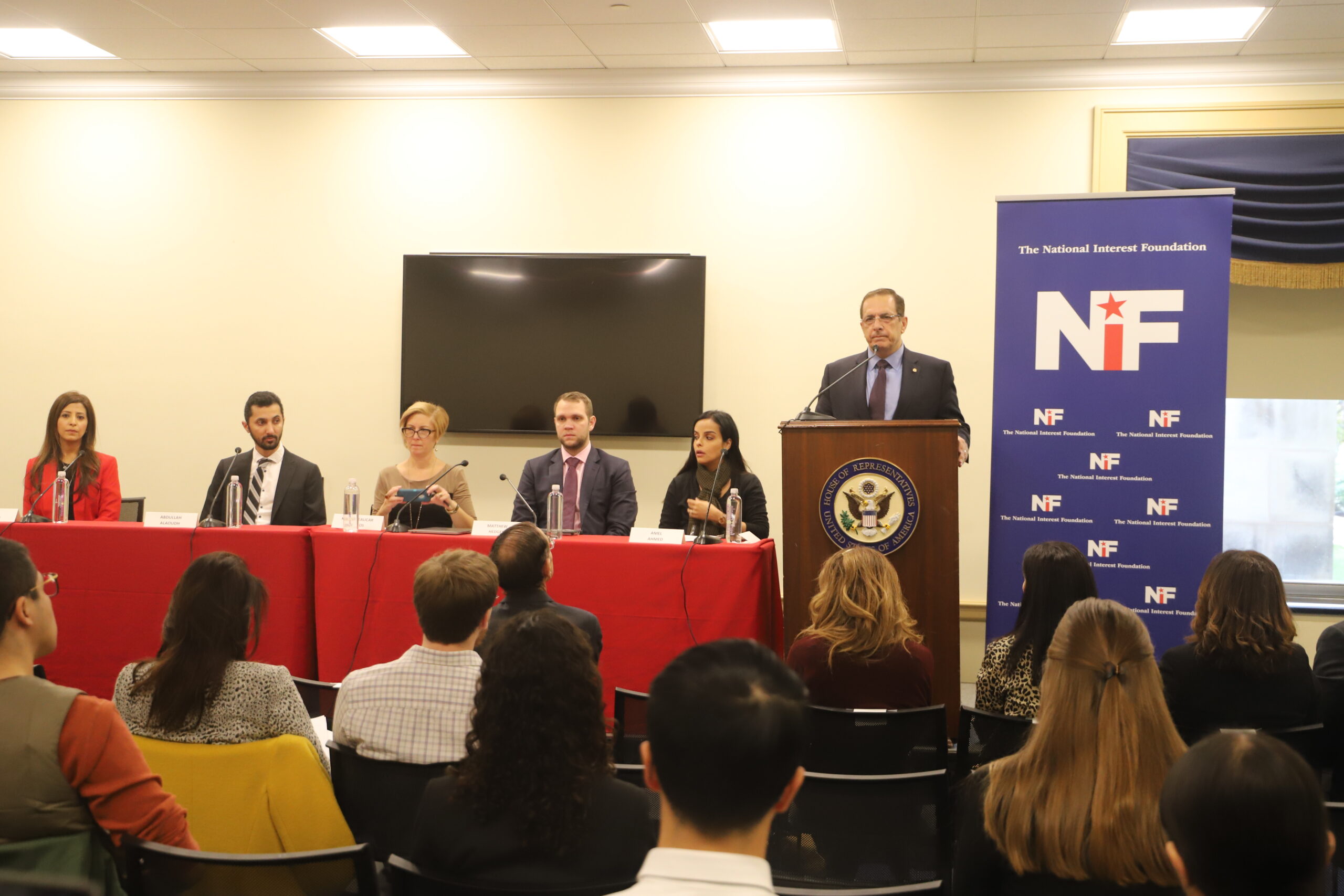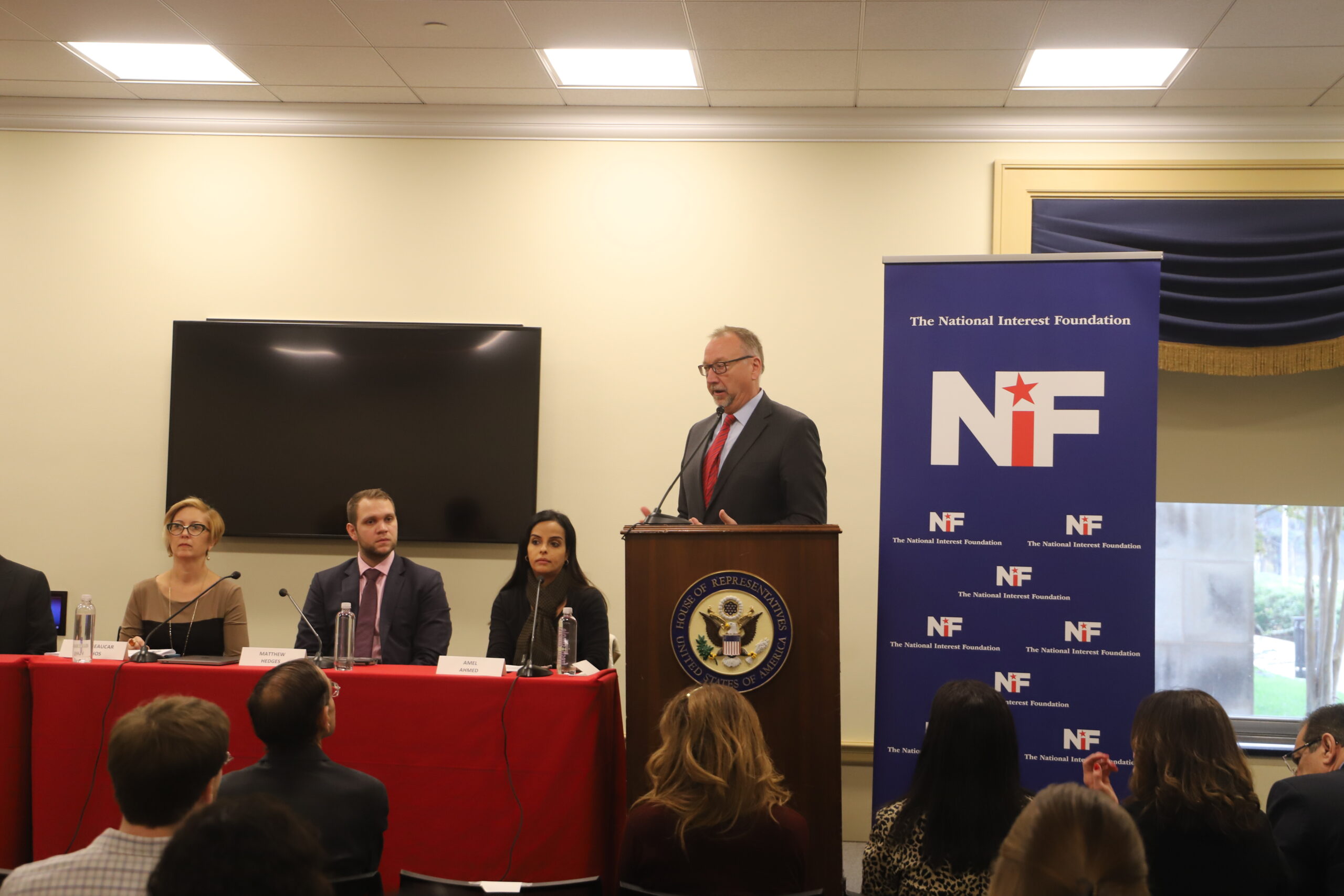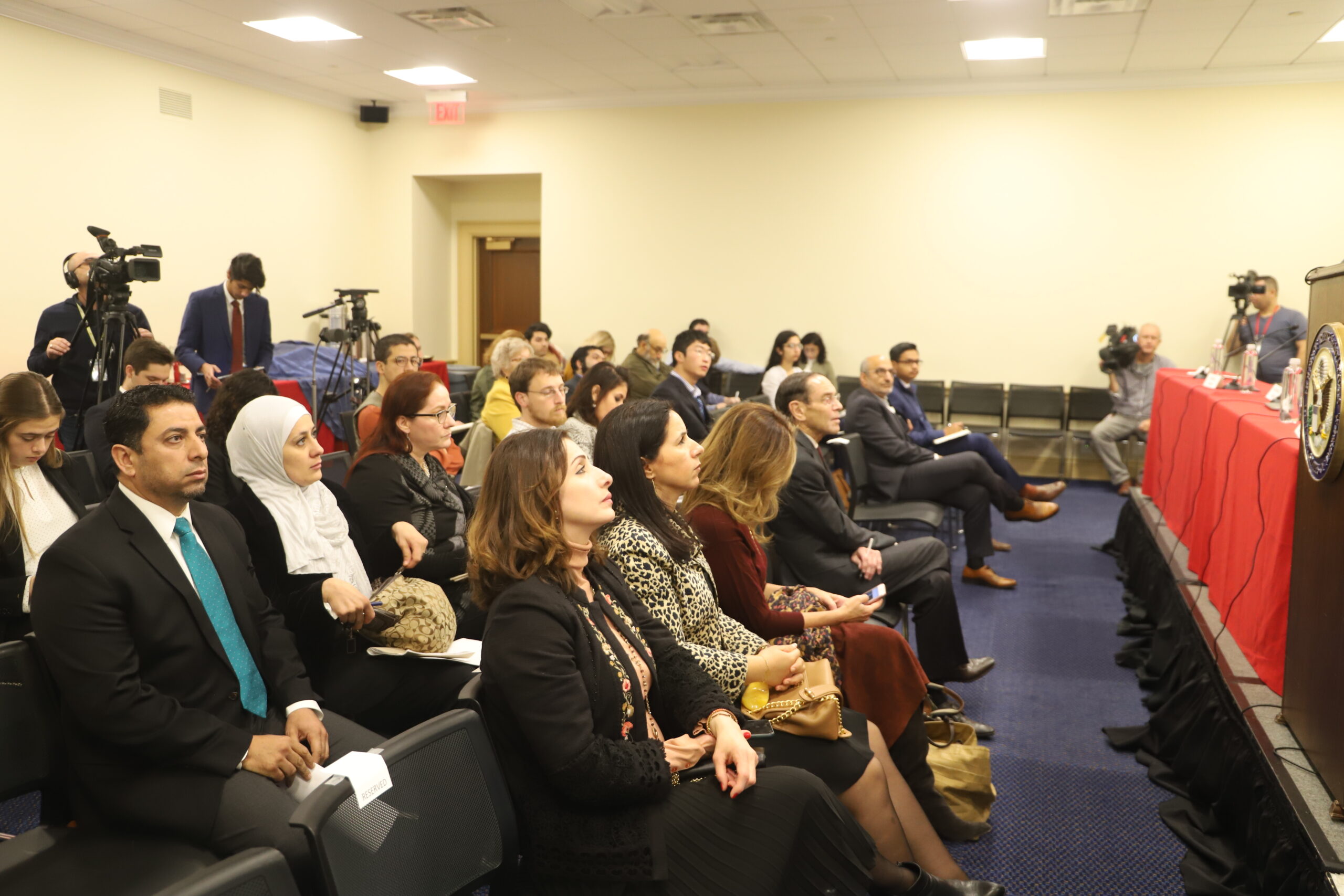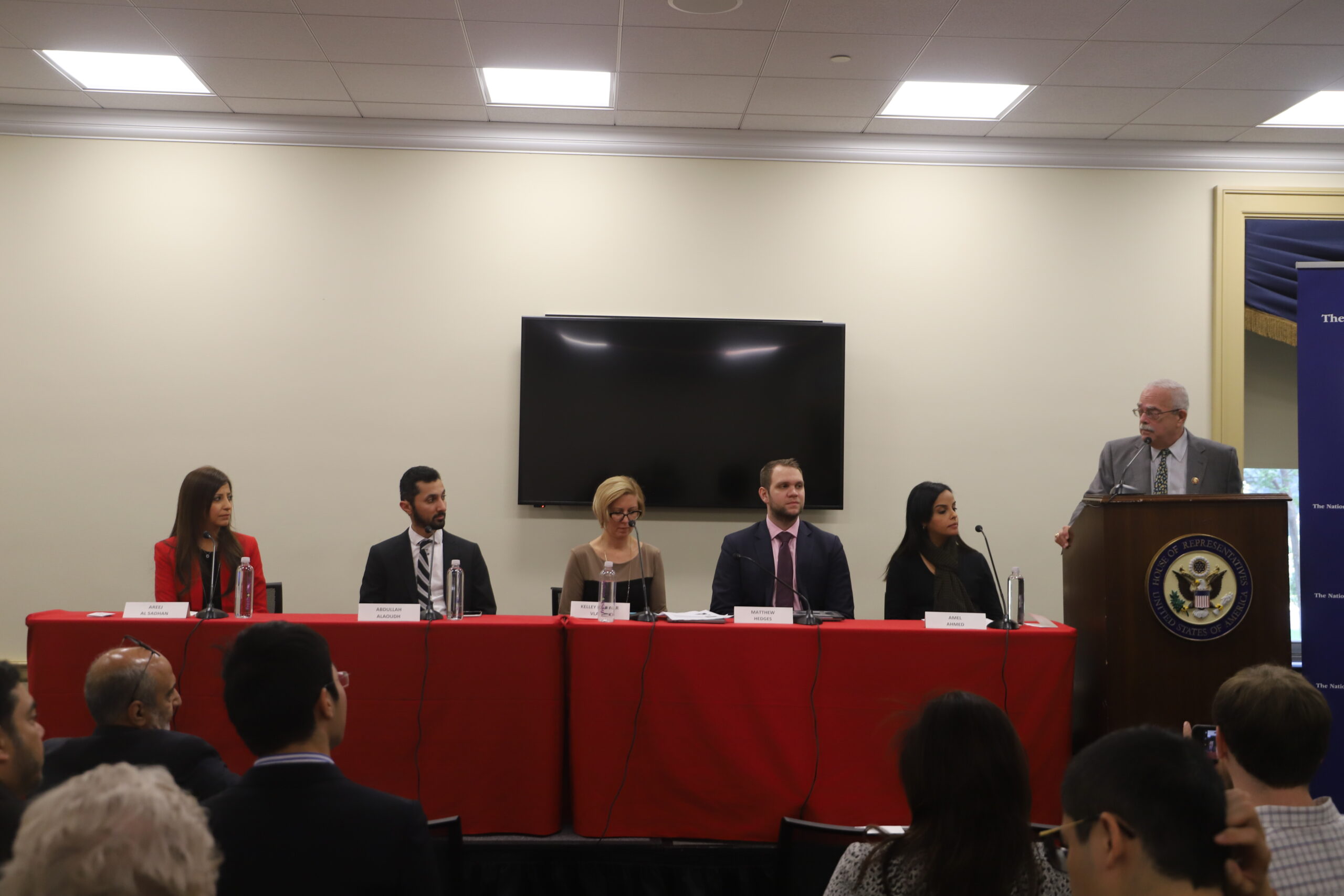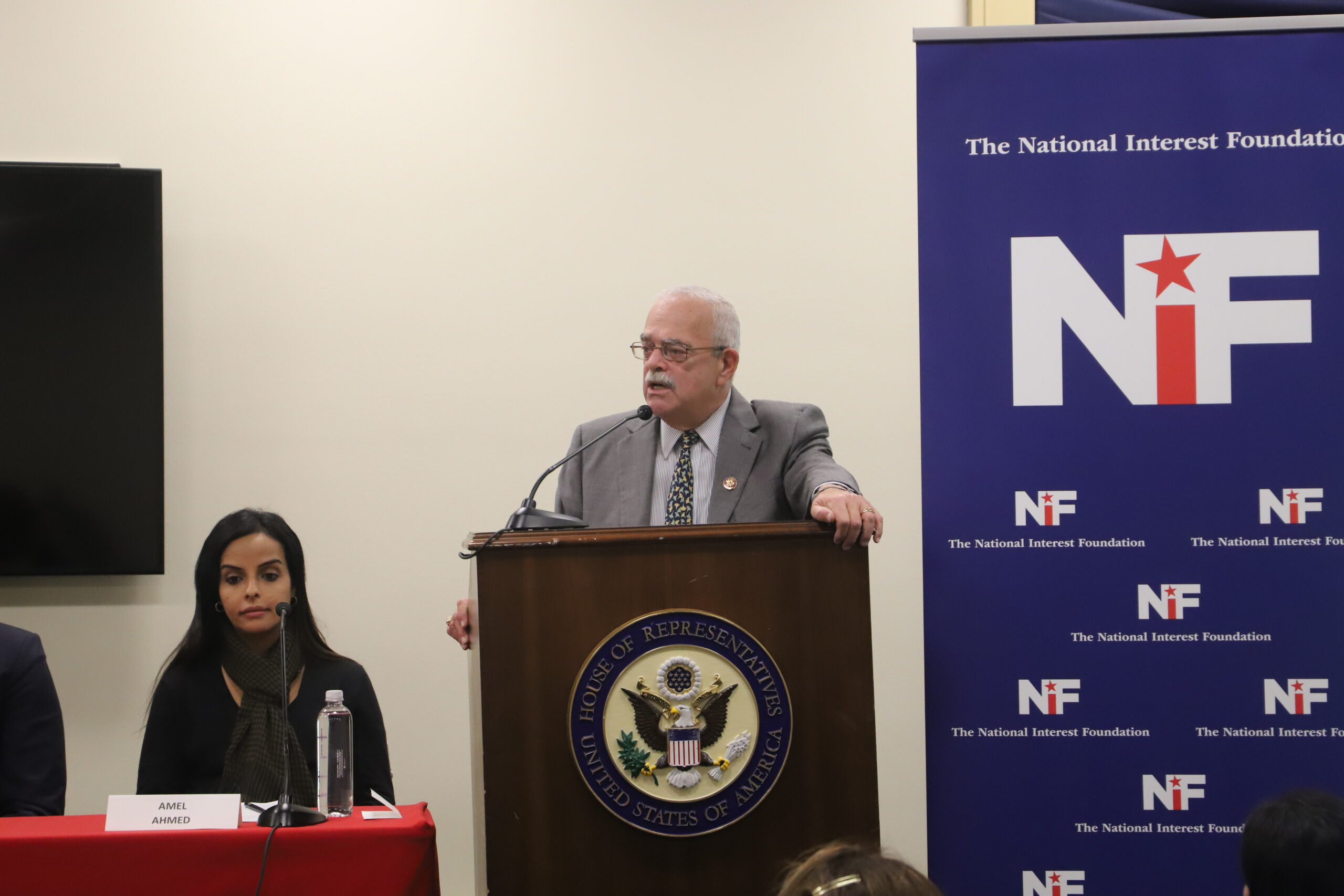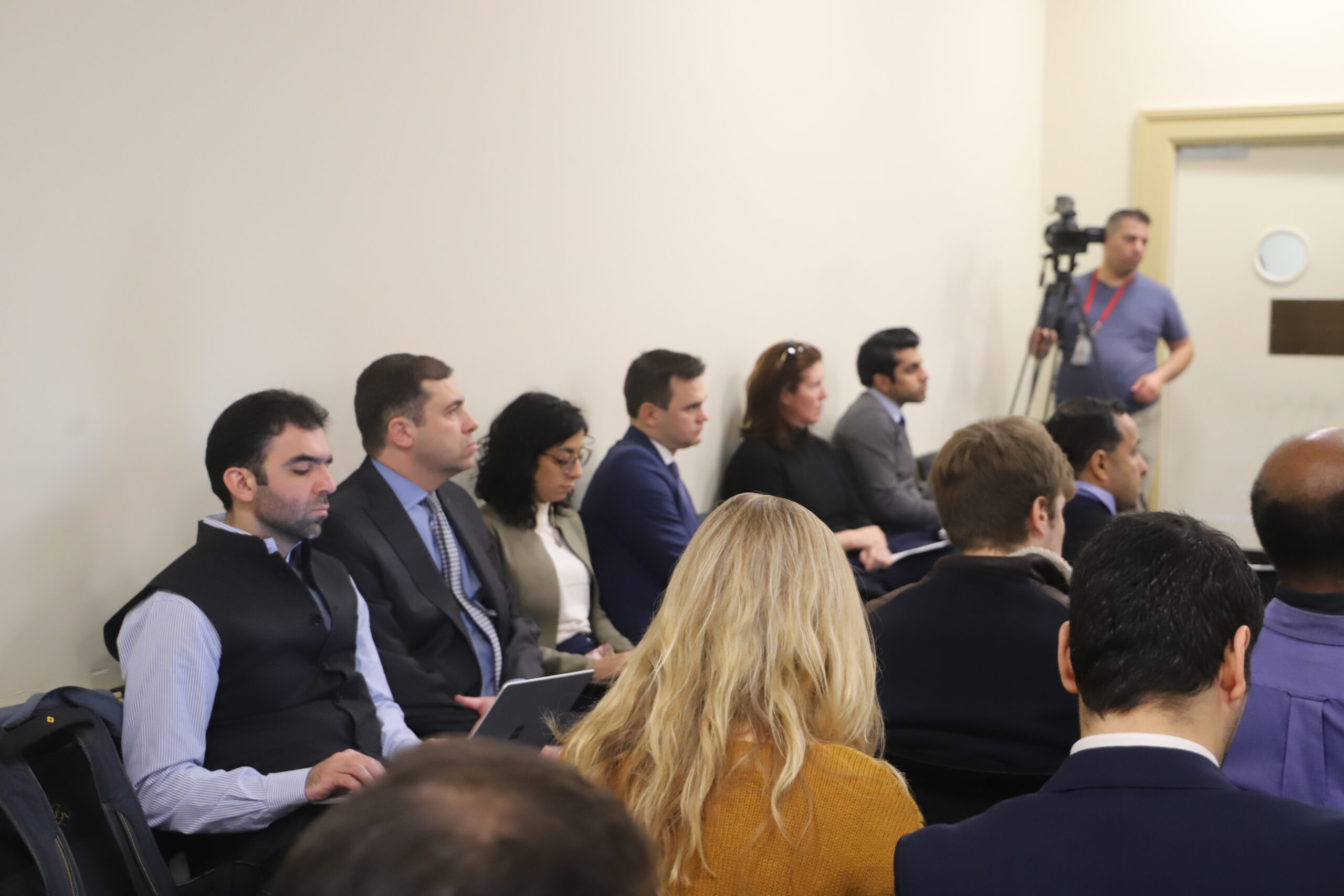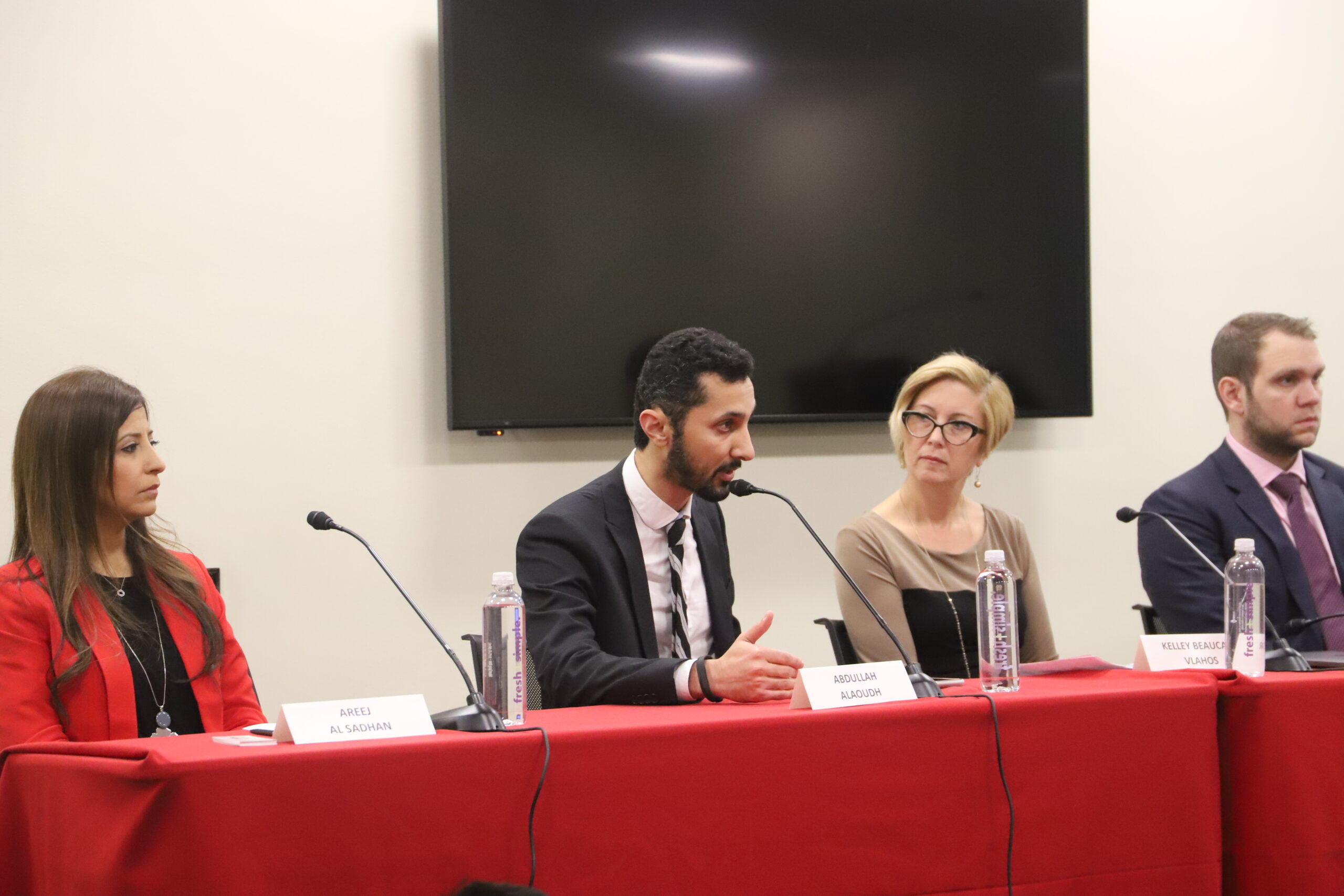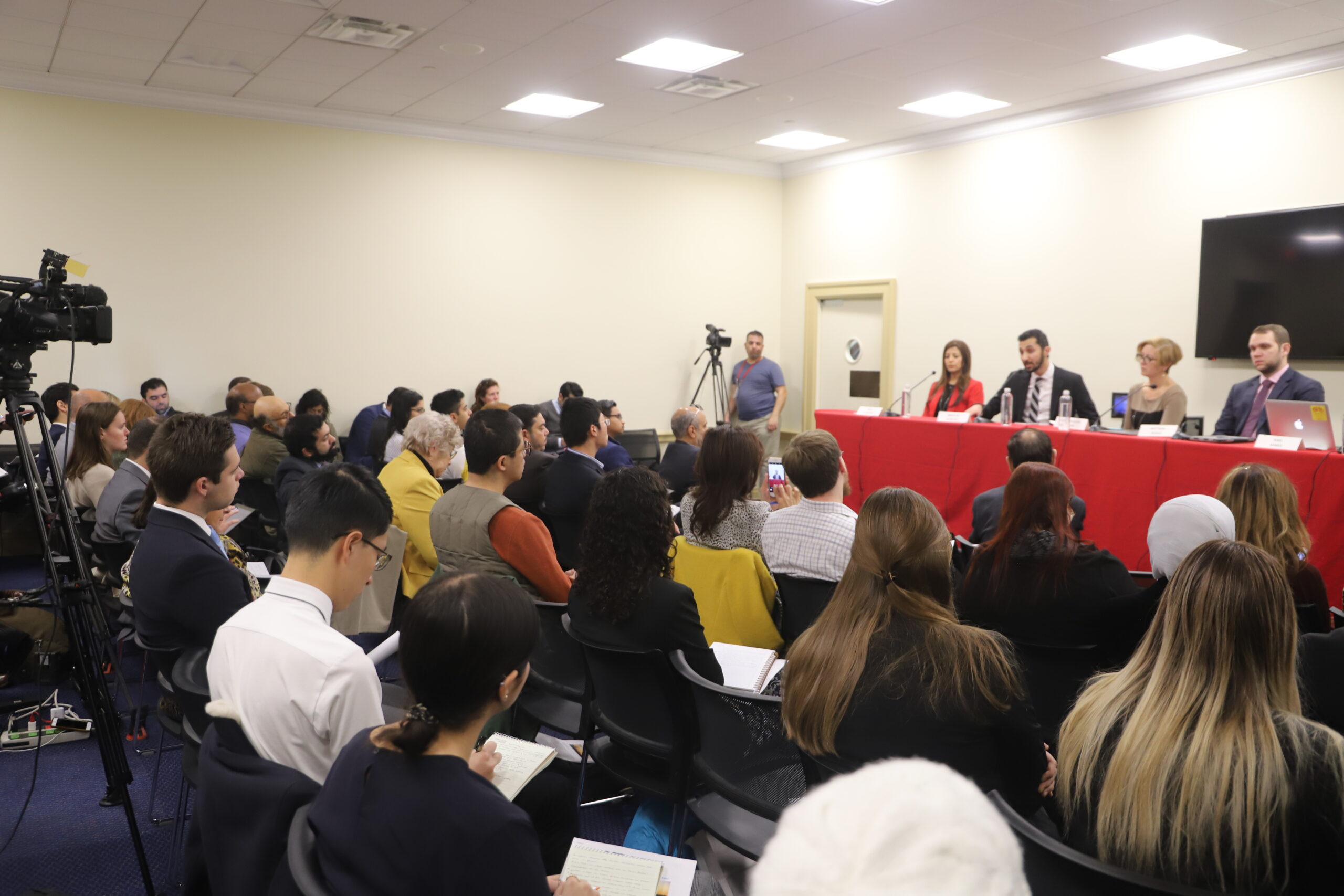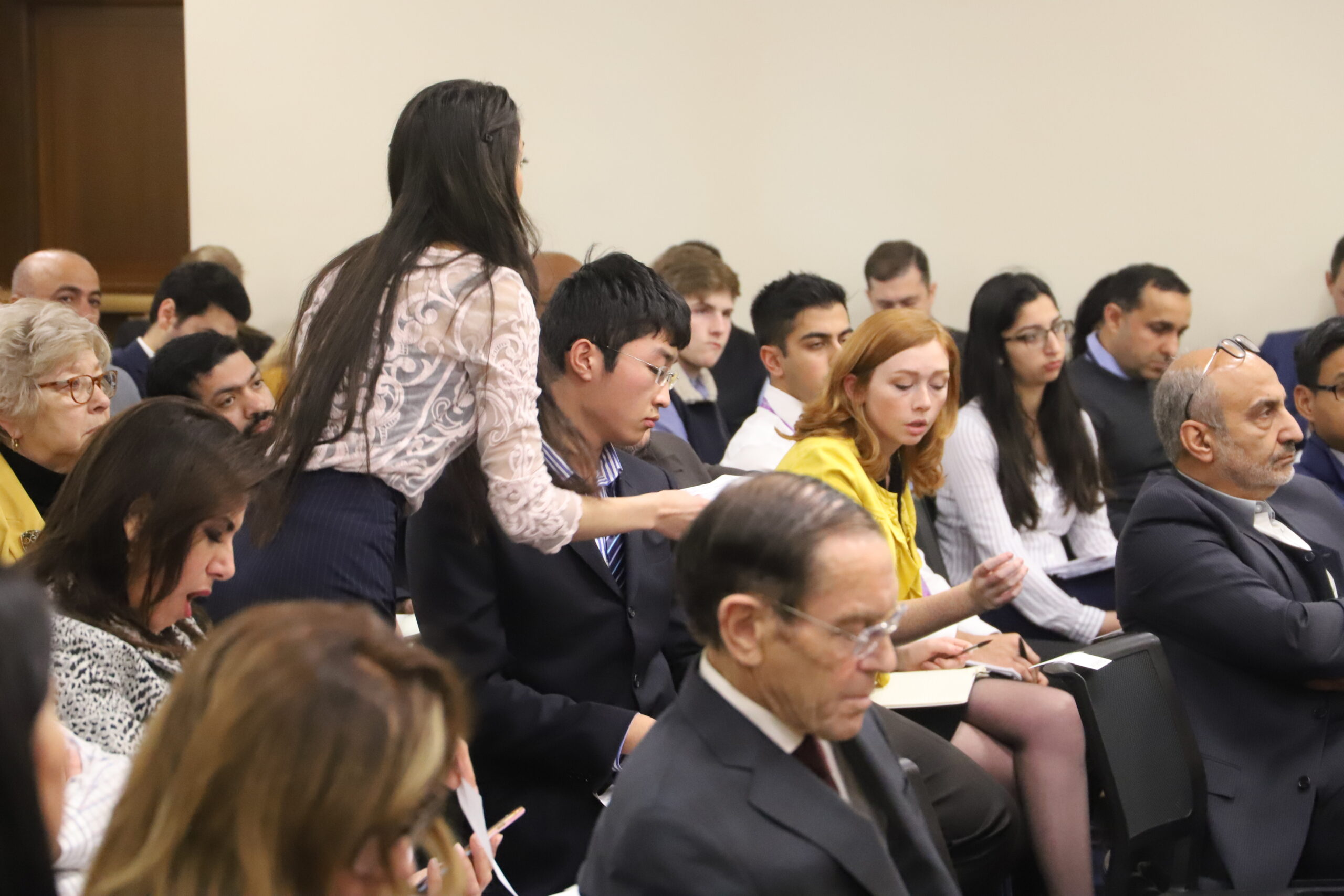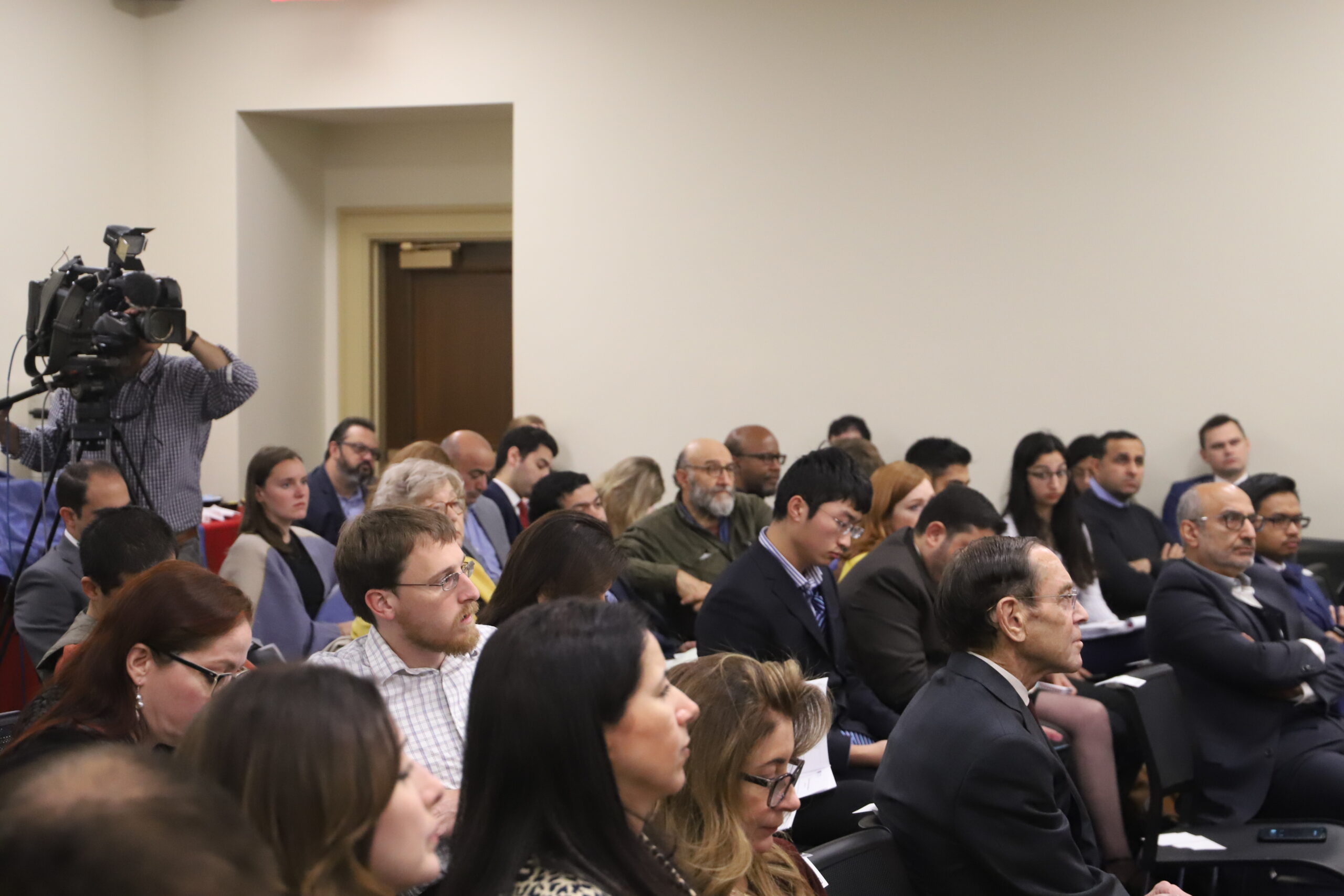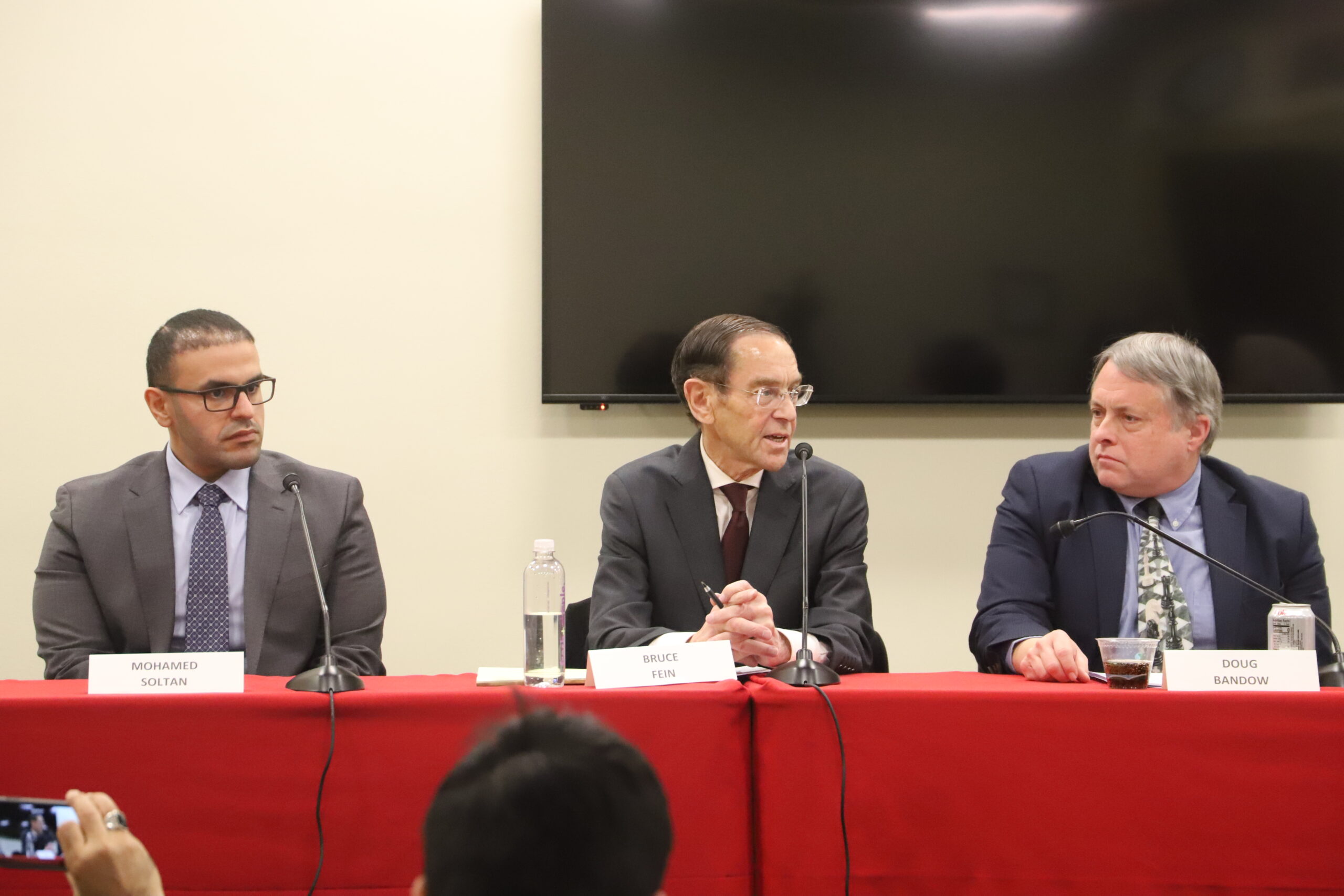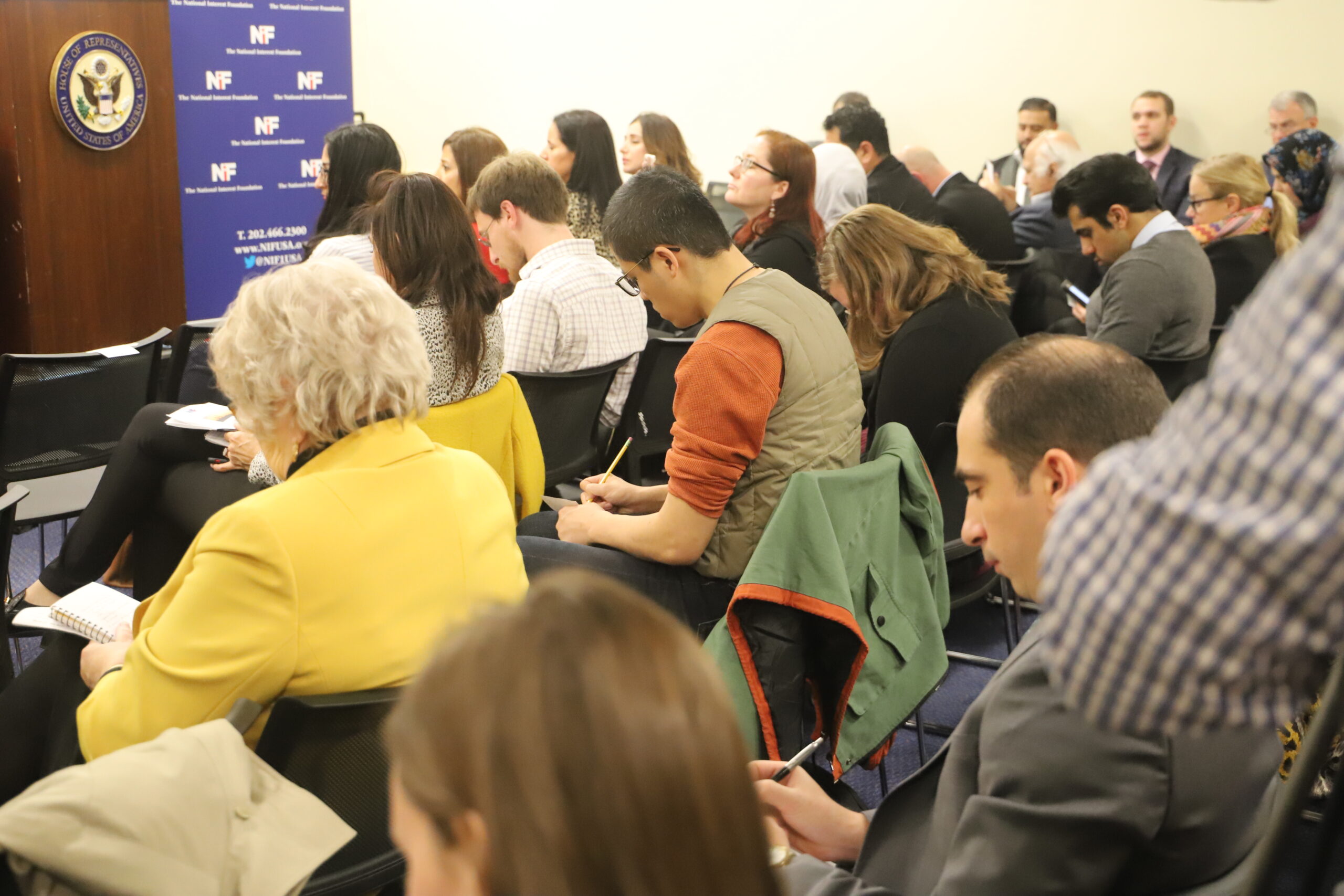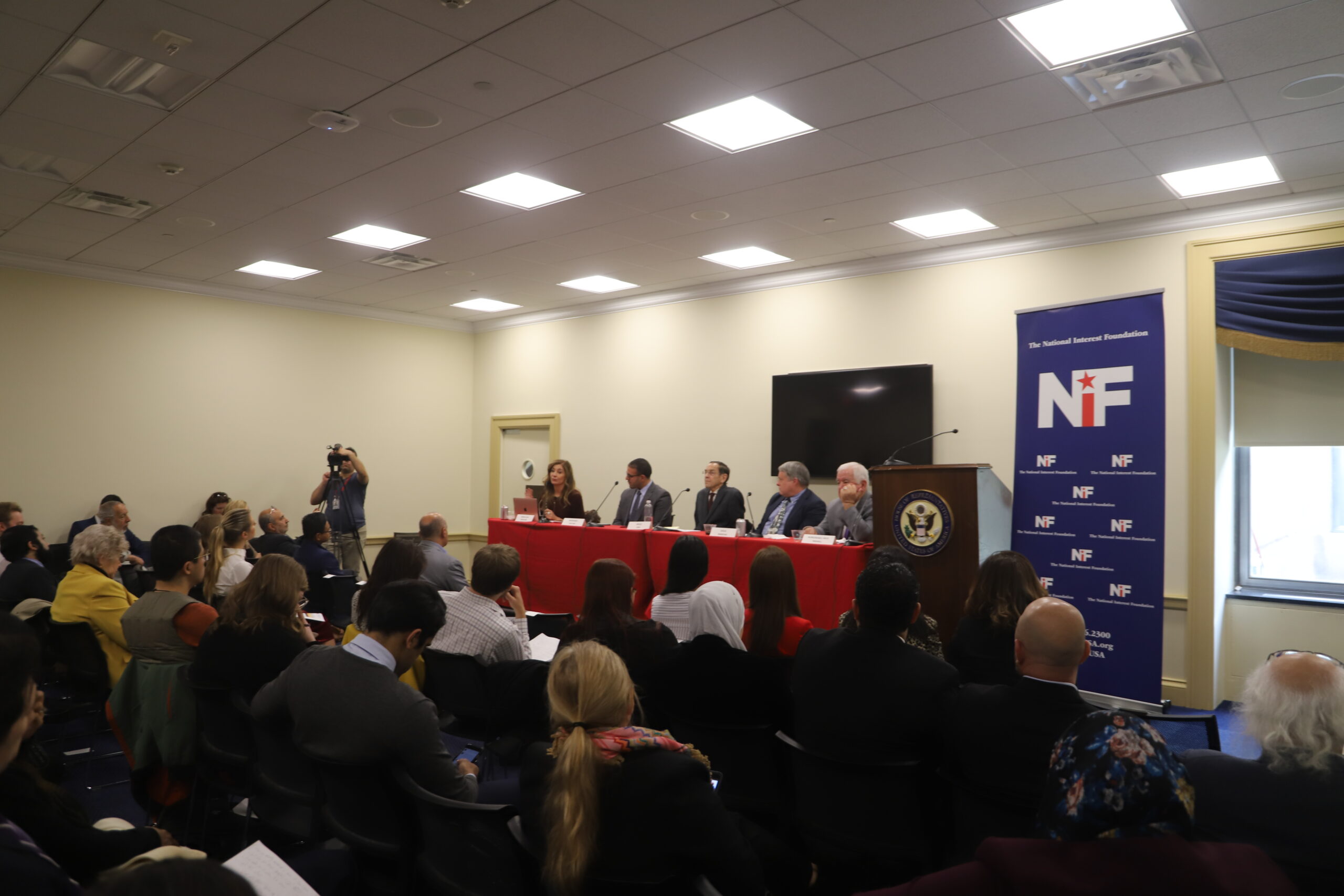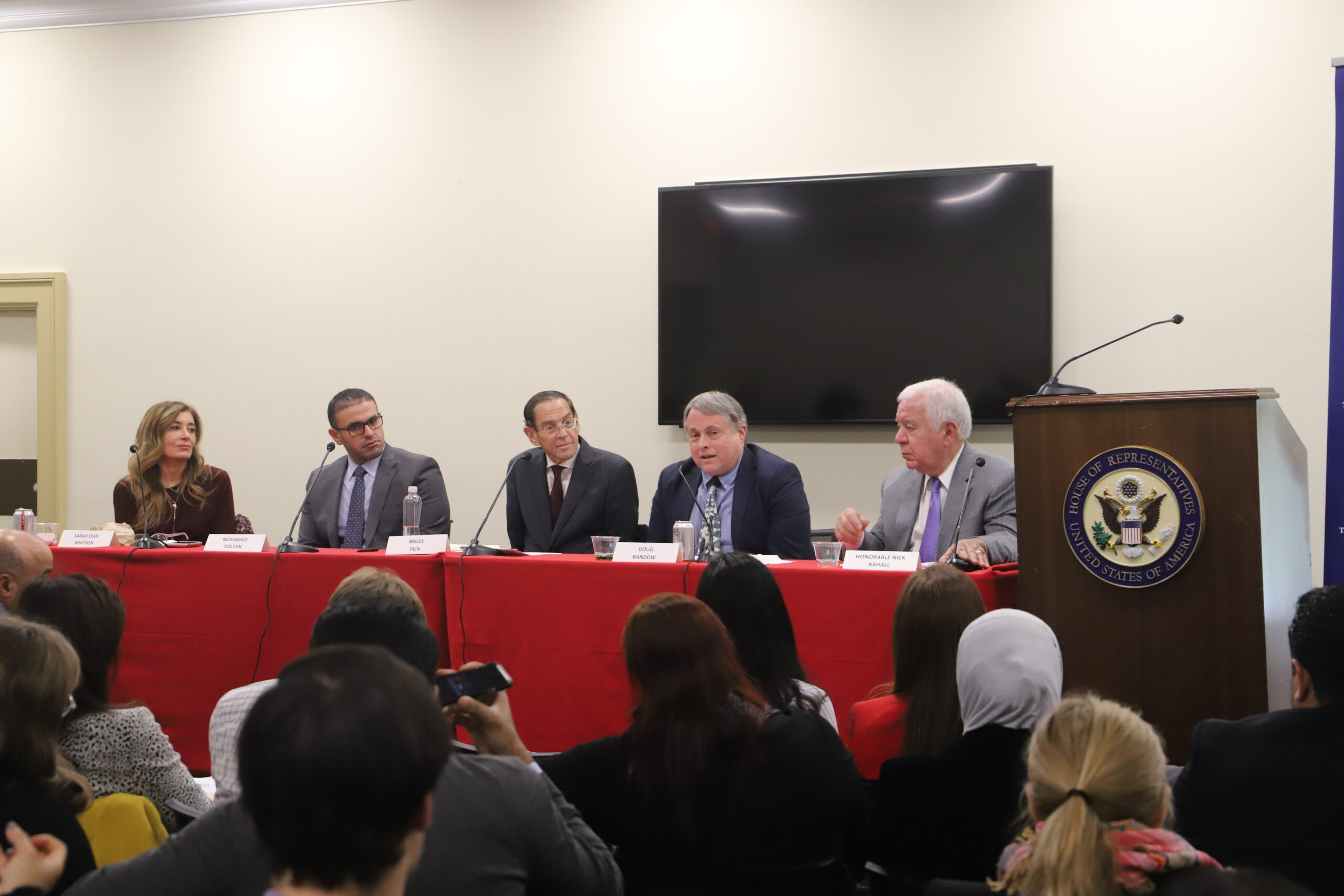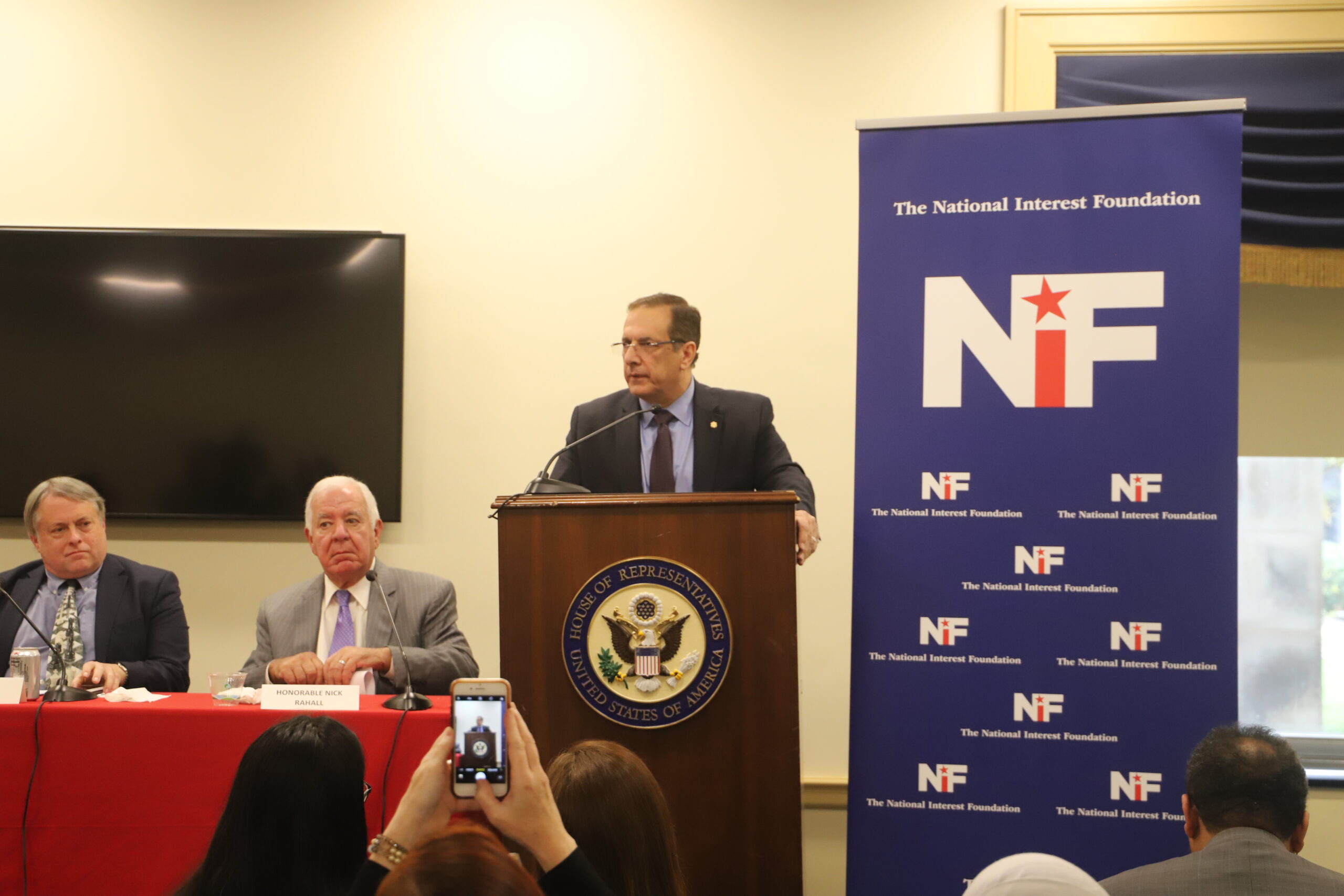The National Interest Foundation (NIF) hosted an event on November 21st, 2019 in the Rayburn House Office Building on Capitol Hill that focused on U.S. foreign policy and human rights in the Middle East. A number of distinguished individuals spoke on panels and discussed the impact that Western powers could have on promoting freedom and democracy in the region. Panelists spoke on the conflicting interests of business and human rights in the Middle East, and the role that the United States’ government, in tandem with its Western allies, plays in this conundrum. Event attendees included staff from over 20 Congressional offices, think tank analysts, embassy officials, and diplomats.
The event began with opening remarks by Khaled Saffuri, President of the National Interest Foundation; Saul Anuzis, Senior Fellow at the National Interest Foundation; and U.S. Congressman Gerry Connolly (D-VA), who sits on the House Committee on Foreign Affairs. We then proceeded to the panel portion of the event, which was divided into two panels: the first focusing on human rights in Middle Eastern countries and the second on U.S. foreign policy and human rights. The first panel consisted of Areej Al Sadhan, Human Rights Activist; Abdullah Alaoudh, Georgetown University; Matthew Hedges, Durham University (UK); Amel Ahmed, Nala Films for HBO; and was moderated by Kelley Beaucar Vlahos, Executive Editor at The American Conservative. The second panel featured Sarah Leah Whitson, Human Rights Watch; Mohamed Soltan, The Freedom Initiative; Doug Bandow, Cato Institute; former Congressman Nick Rahall, D-WVA; and was moderated by Bruce Fein, Fein & DelValle PLLC – who was also the Associate Deputy Attorney General and General Counsel to the Federal Communications Commission under President Ronald Reagan.
Khaled Saffuri and Saul Anuzis gave introductory remarks, with Anuzis touching on the importance of American leadership regarding human rights around the world and stressing the need to place human rights above politics in order of significance for American foreign policy. In Congressman Connolly’s remarks, he emphasized the importance of the United States’ government and its elected officials in protecting citizens and their rights at home and abroad, including in the Middle East. He also drew on the Declaration of Independence to reiterate the importance of freedom for the United States and its citizens. Representative Connolly spoke on the history of the United States and its citizens in condemning actions that are un-American, using the example of the outrage that occurred when President Trump announced his “Muslim Ban” excluding people from certain countries from entering the United States. Rep. Connolly asserted that human rights violations by countries in the Middle East came as a result of fear over opposing viewpoints. He also criticized the increasing use of torture by autocratic Middle Eastern regimes such as those in Syria and Egypt. Congressman Connolly extoled the character and principles of the late Jamal Khashoggi, and called him a role model and inspiration for what Americans should aspire to be. In doing this, Connolly also condemned the leadership of the Saudi government and criticized the American government for enabling the murderous Saudi regime. He finished his remarks by saying the United States should not continue doing business with regimes who show such disdain for human rights.
The first panel began with remarks by Areej al Sadhan, the sister of Abdul Rahman al Sadhan, who was detained by the Saudi Arabian authorities during a crackdown on free speech in 2018. She currently lives in the San Francisco Bay Area, and works in the tech industry. Ms. Al Sadhan spoke on the arbitrary detention of her brother, who has been deprived of all communication with his family since being arrested over 20 months ago. Areej has been working to secure her brother’s release and to draw attention to the worsening human rights conditions in Saudi Arabia. She spoke on the lack of information given to her family about her brother’s detention, which includes not knowing where he is being held. Abdul Rahman’s only crime was speaking out on the condition of human rights in Saudi Arabia on social media. Areej highlighted the plight of hundreds of thousands of Saudis who are languishing in prisons throughout the Kingdom for daring to speak out online over human rights. The Saudi royal family accuse these individuals of being spies, and are able to arbitrarily detain them as a result. Areej emphasized the importance of Western countries raising the issue of arbitrary detention with the Kingdom, particularly in the cases of dual citizens, such as her brother. She criticized American leadership for placing a higher priority on Saudi money and business relationships than on human rights. She also called for lawmakers in the United States to take legitimate steps to combat the spread of Saudi disinformation online, and emphasized the fact that the United States has the ability to push Saudi Arabia into making substantial changes.
Matthew Hedges is a PhD student in the United Kingdom and was the victim of arbitrary detention in the United Arab Emirates while undertaking field research there. He was held for nearly seven months and had been sentenced to life in prison before receiving a presidential pardon. Hedges was charged with spying on behalf of the British government and was held in isolation for the majority of his time in prison. He spoke on the positive image that the UAE holds in the West, and called it an inaccurate description of the country. He accused the leaders of the UAE of becoming increasingly authoritarian and slipping away from its liberal tendencies that first endeared it to the West. As an example, Hedges used his detention as proof that the leaders of the UAE were imprisoning people who had differing viewpoints than their own. Hedges concluded by speaking on the ramifications of geopolitics in the detention of foreign nationals in the UAE, and how Western countries overlooked the arbitrary arrest of their citizens in order to not offend the leadership of the UAE and preserve bilateral financial relationships.
Next, Amel Ahmed spoke on the connection between the ongoing war in Yemen with the suppression of dissidents around the Arab world. Ahmed said that the American effort to promote stability in the region has been an abject failure, which is evidenced by its policies across the Middle East. She stressed that without an American presence in the region, democracy and liberalism would not prosper. This is because if the United States does not use its influence in the Middle East, other countries will, such as Saudi Arabia. According to Ahmed, this has happened in Yemen, and the country has been victimized by Saudi influence. Saudi meddling in Yemen has resulted in the country becoming even more unstable, as President Hadi is essentially a puppet for Saudi Arabia. Through his policies, such as splitting Yemen into six regions, Hadi acts in the interest of the Saudi government, as opposed to furthering Yemeni interests. Ahmed concluded by speaking in tribute of Jamal Khashoggi and used his murder as an example of the extent to which Arab governments will go to silence dissidents. The governments in question violently and proactively repress political freedom over fear of people realizing the negative consequences of their actions at home and abroad.
The final speaker on the first panel was Abdullah Alaoudh, who spoke about the immunity for Saudi nationals who actively threaten and suppress dissidents. Alaoudh spoke about the team of assassins that murdered Jamal Khashoggi in Istanbul, and the role that same team plays on silencing other dissidents in Yemen and at home in Saudi Arabia. Alaoudh’s father was arrested by Saudi officials for being a dissident, and he was hospitalized as a result of the torture he was subjected to while imprisoned. This is common treatment for those who dare to speak out against the Saudi regime, and accused dissidents are usually found guilty by kangaroo courts and subjected to unreasonably harsh penalties, such as death sentences. According to Alaoudh, the individuals who find and report dissidents often have a blind eye turned to them by the international community, which enables them. This behavior emboldens autocratic regimes, such as that in Saudi Arabia, and leads to further suppression of political freedoms.
Moderator Kelley Beaucar Vlahos wrapped up the first panel by highlighting underlying similarities of each panelist’s testimony. She specifically drew attention to a culture of fear, oppression, and abuse fostered by governments in the Middle East, particularly in the Gulf region. She also hinted toward an underlying vulnerability within these governments that push them to act in this manner, and cited an aura of paranoia within Gulf governments that push them into acting repressively.
The second panel began with remarks by former U.S. Congressman Nick Rahall, the longest serving representative from the state of West Virginia, having represented his district for 38 years. He chaired the House Committee on Natural Resources for a time, and was also the ranking member of the House Committee on Transportation and Infrastructure. He spoke on the hierarchical nature of American priorities throughout the world, particularly in the Middle East, and how human rights was fairly low on that list. To illustrate this point, he drew attention to American aid to Israel juxtaposed against the treatment that Palestinians suffer at the hands of Israel. In this case, the United States has decided that Israeli partnership in the Middle East is more important than the rights of Palestinians. Rep. Rahall also criticized certain lobbying organizations in the United States for enabling the mistreatment of Palestinians in Israel and said that politicians often became unable to change anything as a result of money from lobbyists. In order to change this, Rep. Rahall said that people organizing at the grassroots level could inspire change by affecting the decision making of their elected officials.
The next speaker was Doug Bandow, who is currently a Senior Fellow at the Cato Institute. Bandow previously served as a special advisor to President Reagan, and as a visiting fellow at the Heritage Foundation. Bandow gave policy proposals to improve the current human rights situation in the Middle East. One of these was for the United States to renege on defense guarantees for countries who disregard human rights. Currently, the U.S. guarantees defense for countries such as Israel, Saudi Arabia, Turkey, and Pakistan, all of whom have poor records on human rights. Bandow believes that this is part of a larger problem, in which the United States acts as the world’s policeman, but is not very good at it. To demonstrate this point, Bandow pointed to American lawmakers’ general unwillingness to confront foreign powers on human rights unless one of their constituents is directly involved. In order to change this, Bandow argued that the United States should amend its policy to not guarantee the defense of countries who are flippant about human rights. This would be a black and white decision that removes politics from the equation, as the State Department would decide whether or not countries were abiding by acceptable standards of protecting human rights.
Following Doug Bandow, former Egyptian political prisoner Mohamed Soltan spoke. Soltan was shot and detained by Egyptian security forces in 2013 on bogus charges, and underwent a 400-day hunger strike to protest his detention. Following a wide-scale, international lobbying effort, the Egyptian government released him in mid-2015. Soltan spoke on the lack of understanding that foreign officials have of problems facing people on the ground. He said that American policy was focused on oil and business interests instead of on human beings. Soltan said that the issues facing people on the ground in authoritarian states were incredibly nuanced, and foreign lawmakers didn’t have a proper understanding of that. In order to change this, Soltan advocated for the U.S. and its allies to use “bully diplomacy” to exert its leverage over authoritarian regimes. The United States has leverage over repressive governments because its recognition of them as legitimate gives them power. Soltan also warned that the United States allowing China and Russia to fill a power void in the Middle East would have disastrous consequences. He advocated for the United States to continue to have a presence in the region, but to alter its strategy.
Finally, Sarah Leah Whitson of Human Rights Watch concluded the second panel. Whitson is the Executive Director of Human Rights Watch’s programs in the Middle East and North Africa. Ms. Whitson focused her discussion on American hypocrisy on human rights. She said that the United States was a chief violator of international human rights, and pointed to wayward airstrikes in Syria and Afghanistan, in addition to support of countries such as Israel, as proof. She also accused leaders in Washington of being complicit in war crimes occurring in Yemen. As a result of this, Whitson argued that United States is undermining itself, and it has lost credibility in the Middle East as a defender of human rights. She contended that if the United States wanted to enact real change in the Middle East, then it had to take a look in the mirror first, and change its own policies.
In wrapping up the final panel, several of the panelists emphasized the importance of individual constituent outreach to Congress in order to positively affect change on this issue. Moderator Bruce Fein, for example, spoke about the significant level of transparency and accessibility of Congressmembers and how high priority is given to individual correspondence from constituents.
Enter the text or HTML code here

